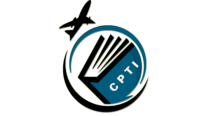Passing the DGCA pilot exams is a crucial step in your journey to becoming a certified pilot in India. The Directorate General of Civil Aviation (DGCA) has rigorous standards to ensure…
Top 10 Tips to Pass Your DGCA Pilot Exams on the First Attempt


Let Your Dreams Take Flight

Passing the DGCA pilot exams is a crucial step in your journey to becoming a certified pilot in India. The Directorate General of Civil Aviation (DGCA) has rigorous standards to ensure…